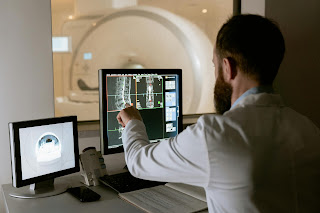As we age, the topic of cognitive decline inevitably enters our conversations, often laced with a mix of concern and uncertainty. It's a natural part of aging, but that doesn't mean we're powerless against it. In fact, embracing a proactive stance on cognitive health can lead to a richer, more vibrant life in our later years. Let's dive into how we can take charge of our cognitive health, with a little help from our friends and family.
Understanding Cognitive Decline
Cognitive decline is more than just forgetting where you left your keys or the name of an acquaintance. It refers to a noticeable decrease in cognitive abilities, including memory, language, thinking, and judgment skills. While it's a normal part of aging, severe decline can lead to dementia, including Alzheimer's disease, which significantly impacts daily living.
The Power of Prevention
Prevention is your strongest ally against cognitive decline. Regular physical exercise, a balanced diet rich in omega-3 fatty acids, and staying mentally active can bolster brain health. Activities like puzzles, reading, and learning new skills keep the brain engaged and can slow the aging process of your mind.
The Role of Social Connections
Humans are inherently social creatures, and our connections with others play a crucial role in our mental health. Engaging in social activities, maintaining friendships, and being part of a community can reduce feelings of loneliness and stress, which are known risk factors for cognitive decline. So, next time you're debating whether to attend a social gathering, remember it's not just fun—it's good for your brain.
Embracing Routine Screenings
Routine health screenings aren't just for monitoring physical health; they're also crucial for catching early signs of cognitive decline. Regular check-ups with your healthcare provider can help identify changes in cognitive functions early on, allowing for timely intervention and management.
The Support System
Navigating cognitive decline is not a journey to take alone. Friends and family can play a significant role in supporting loved ones experiencing cognitive changes. Whether it's accompanying them to doctor's appointments, helping with daily tasks, or simply being there to listen, the support of loved ones is invaluable.
Staying Informed
Cognitive decline might be a part of aging, but it doesn't have to define our golden years. By adopting a proactive approach to our cognitive health, staying socially connected, and leveraging the support of our loved ones, we can protect our mental faculties and enjoy a fulfilling life. Remember, taking charge of your cognitive health is not just about adding years to your life—it's about adding life to your years.
Let's not wait for signs of decline to start thinking about our cognitive health. The time to act is now. Whether it's picking up a new hobby, joining a local club, or simply going for a daily walk, every little step counts towards a healthier, sharper mind. So, let's embrace this journey with optimism and determination, knowing that our efforts today can lead to a brighter, more cognitively vibrant tomorrow.










